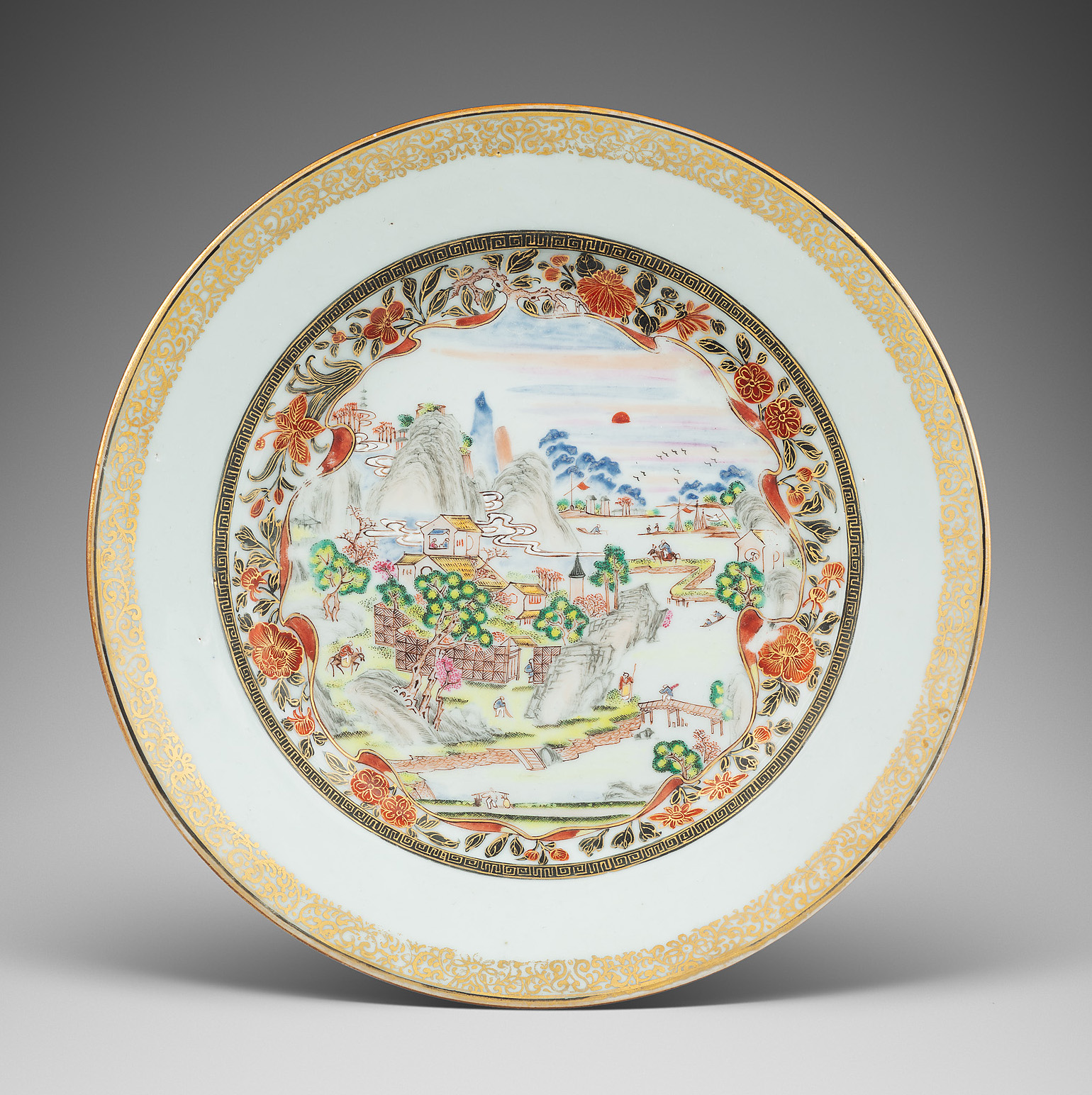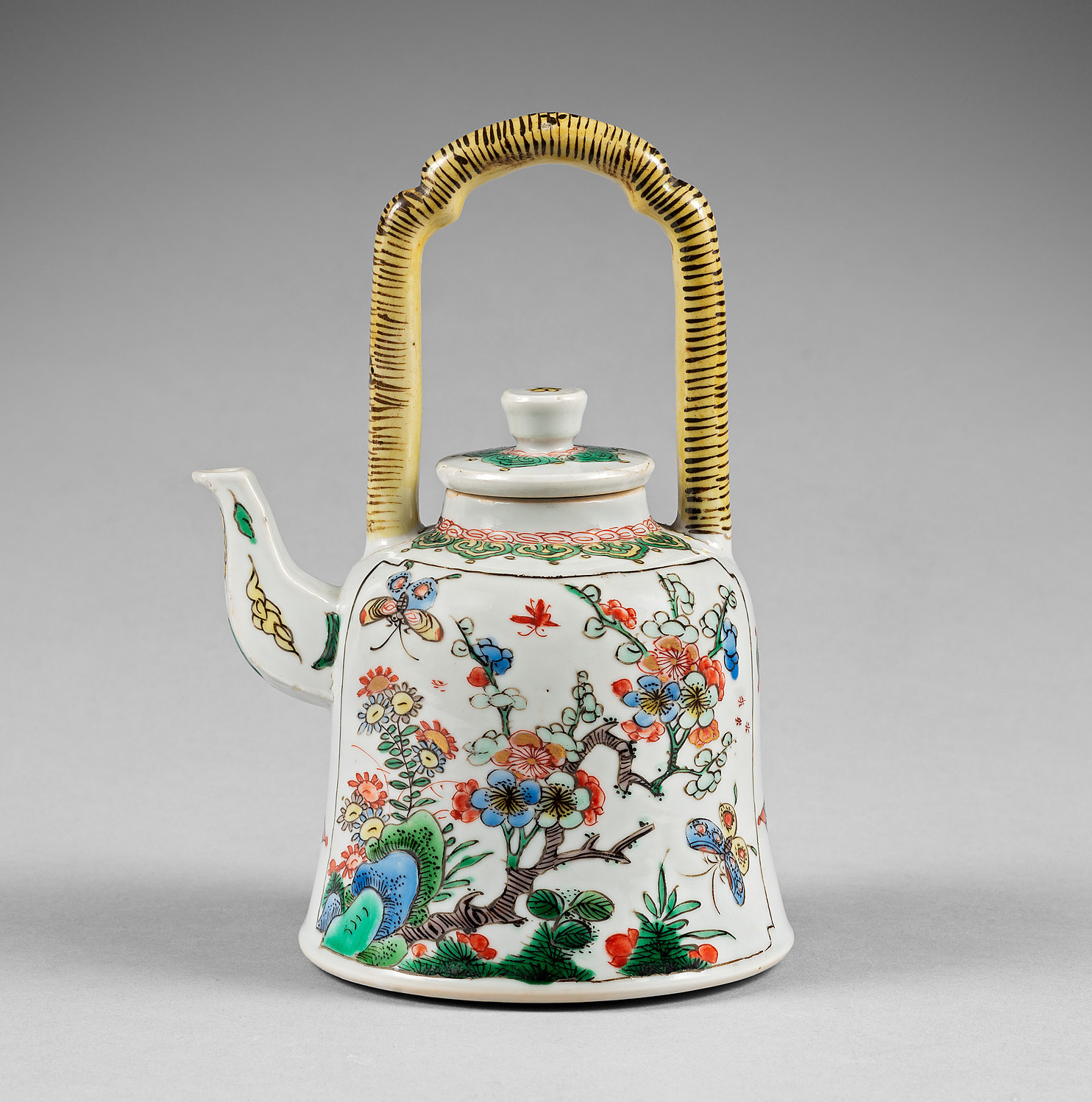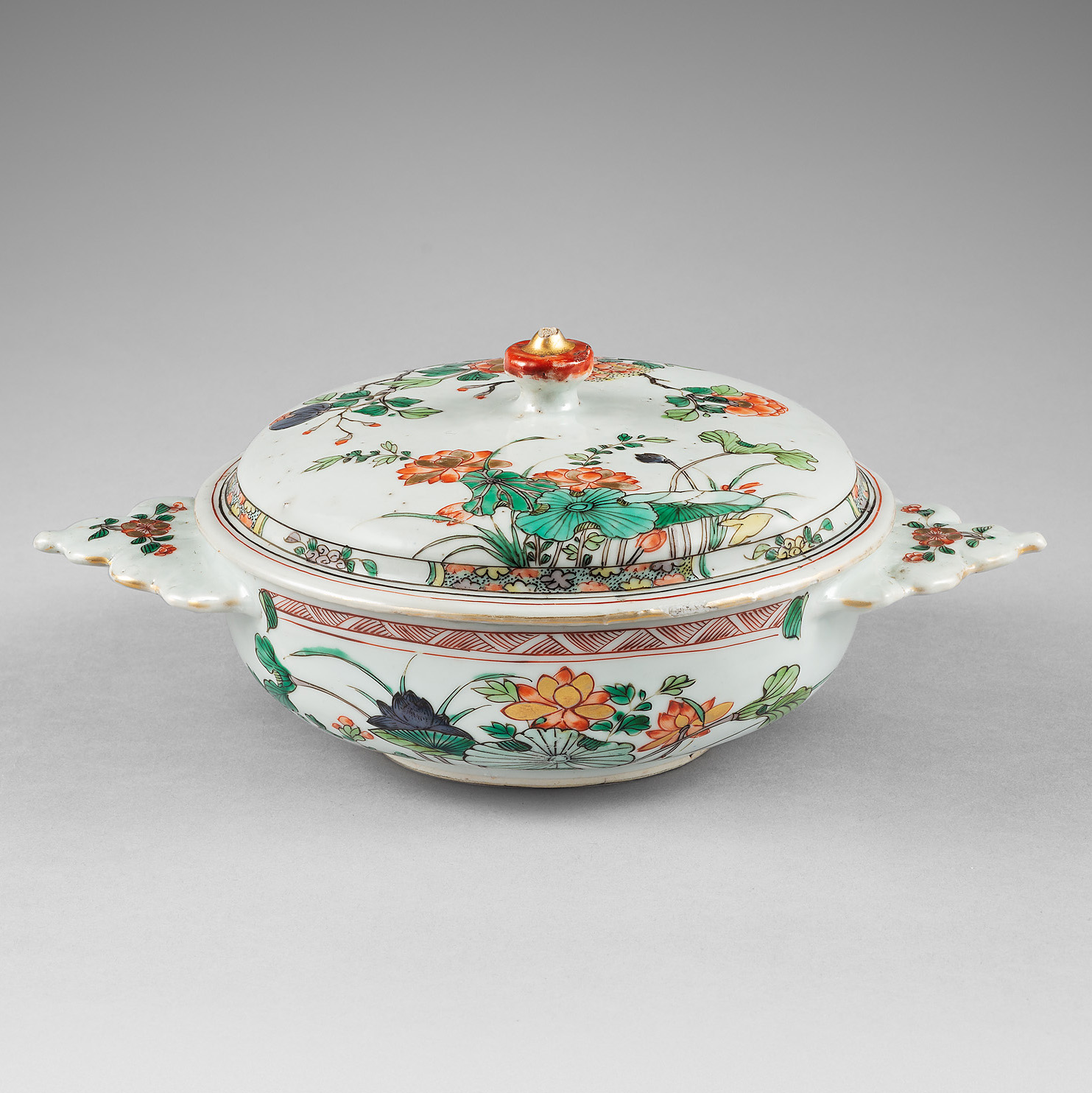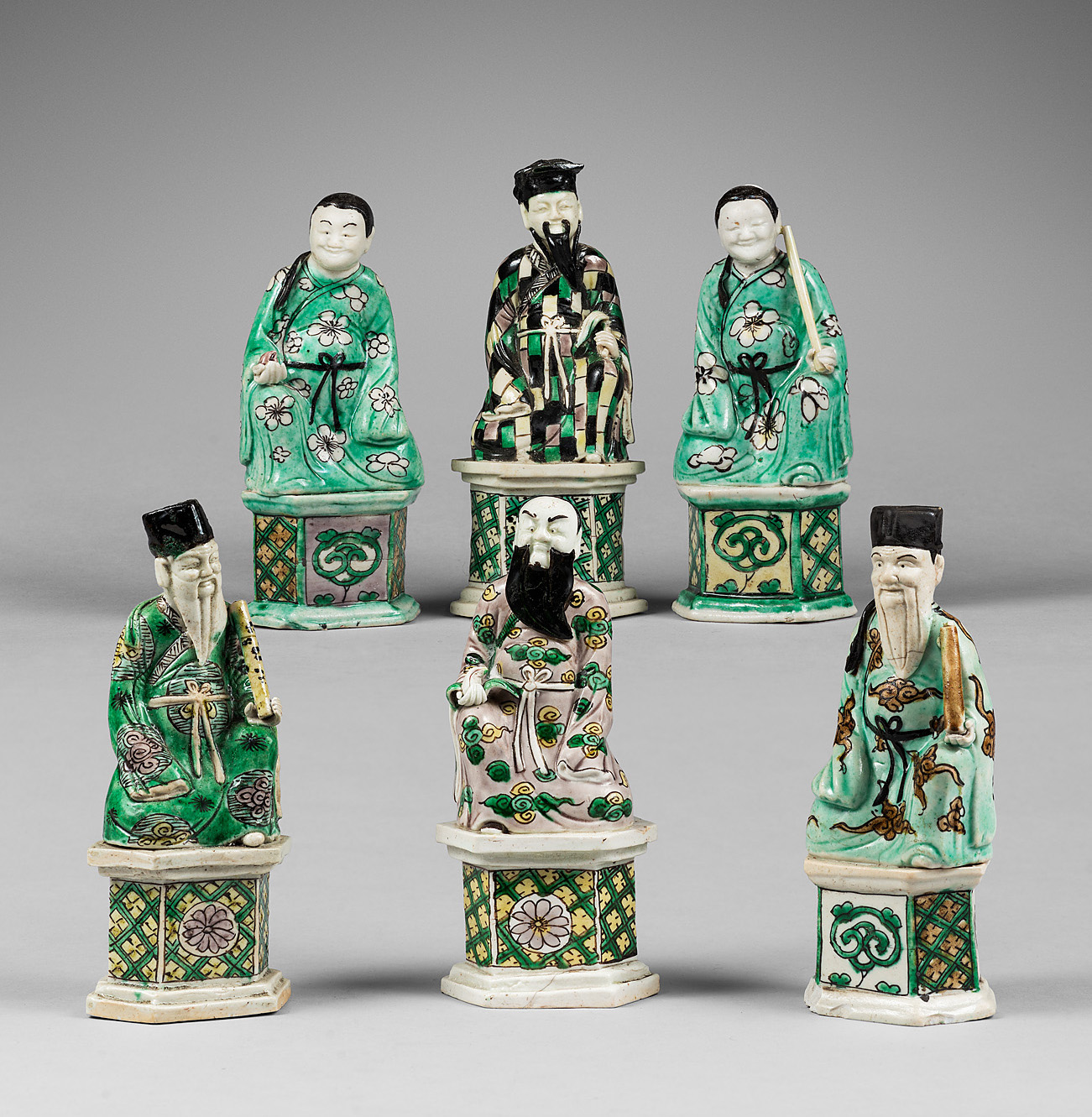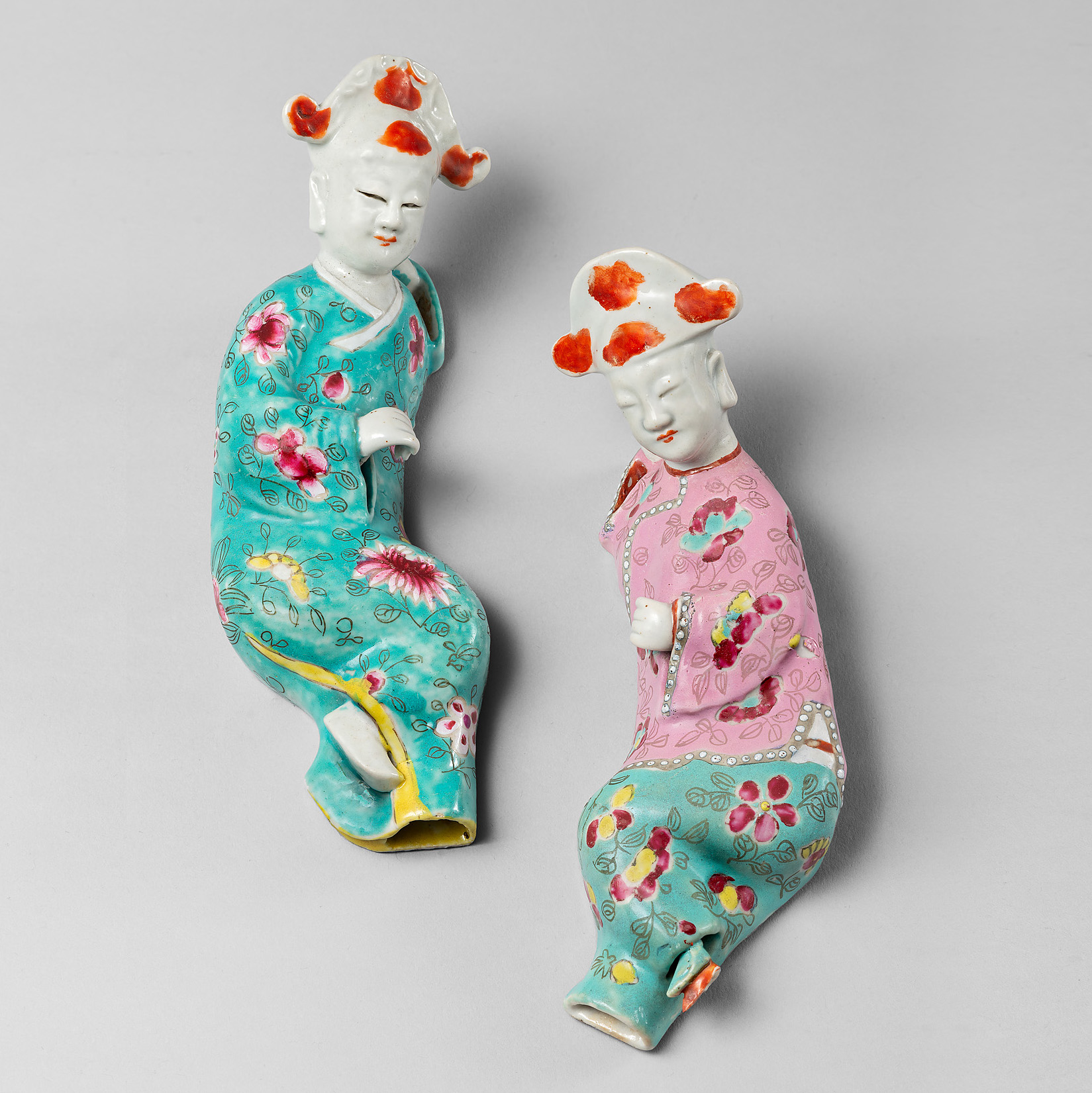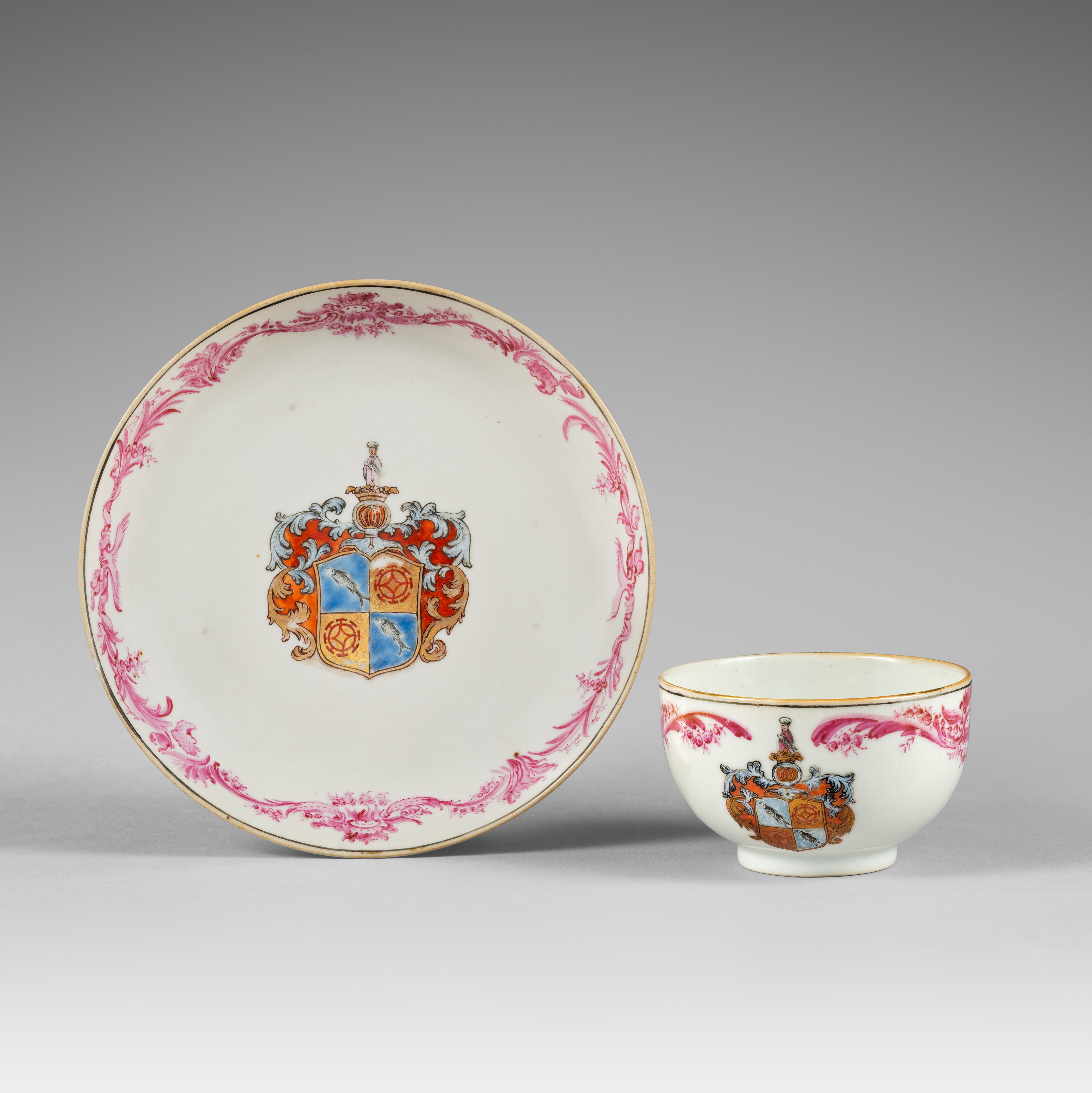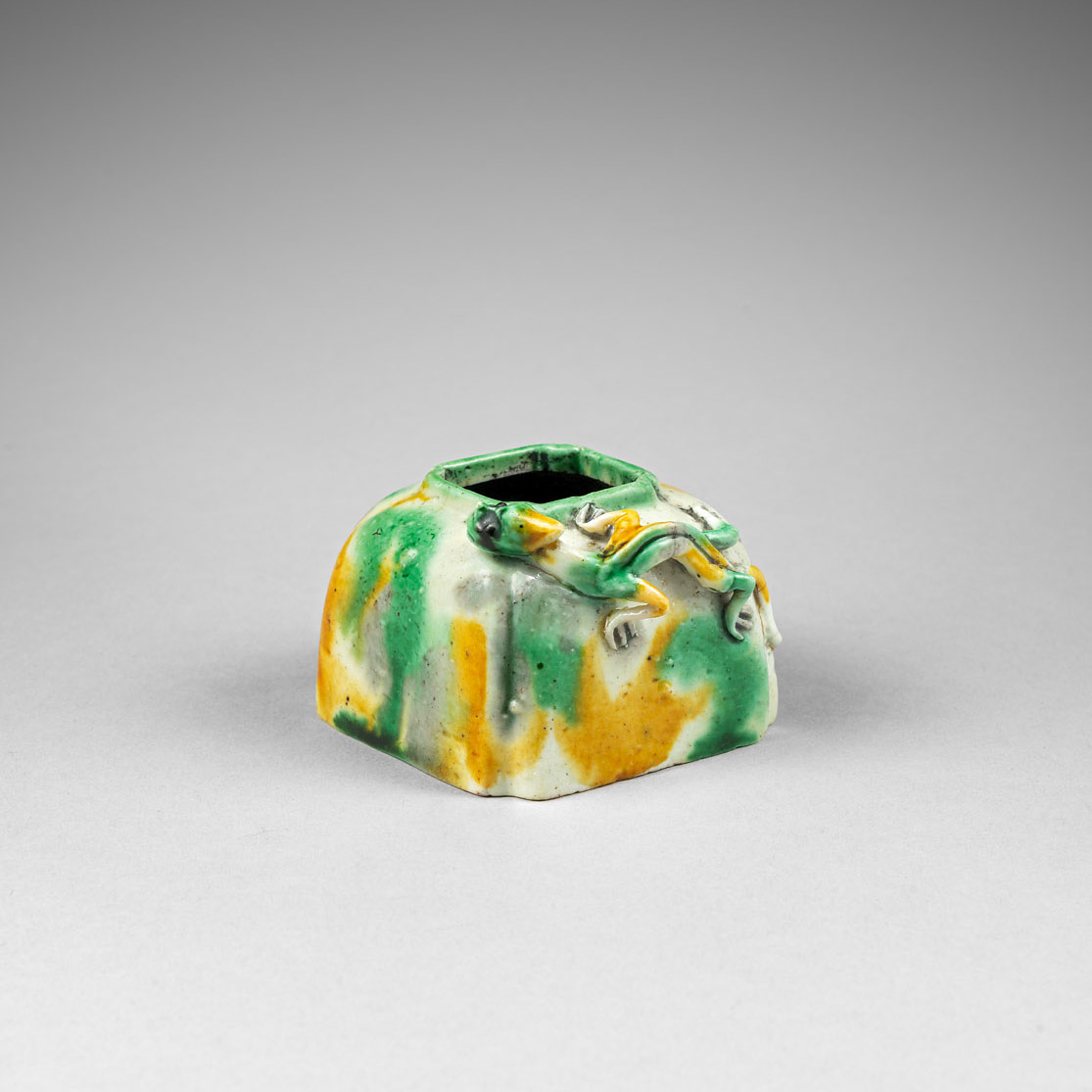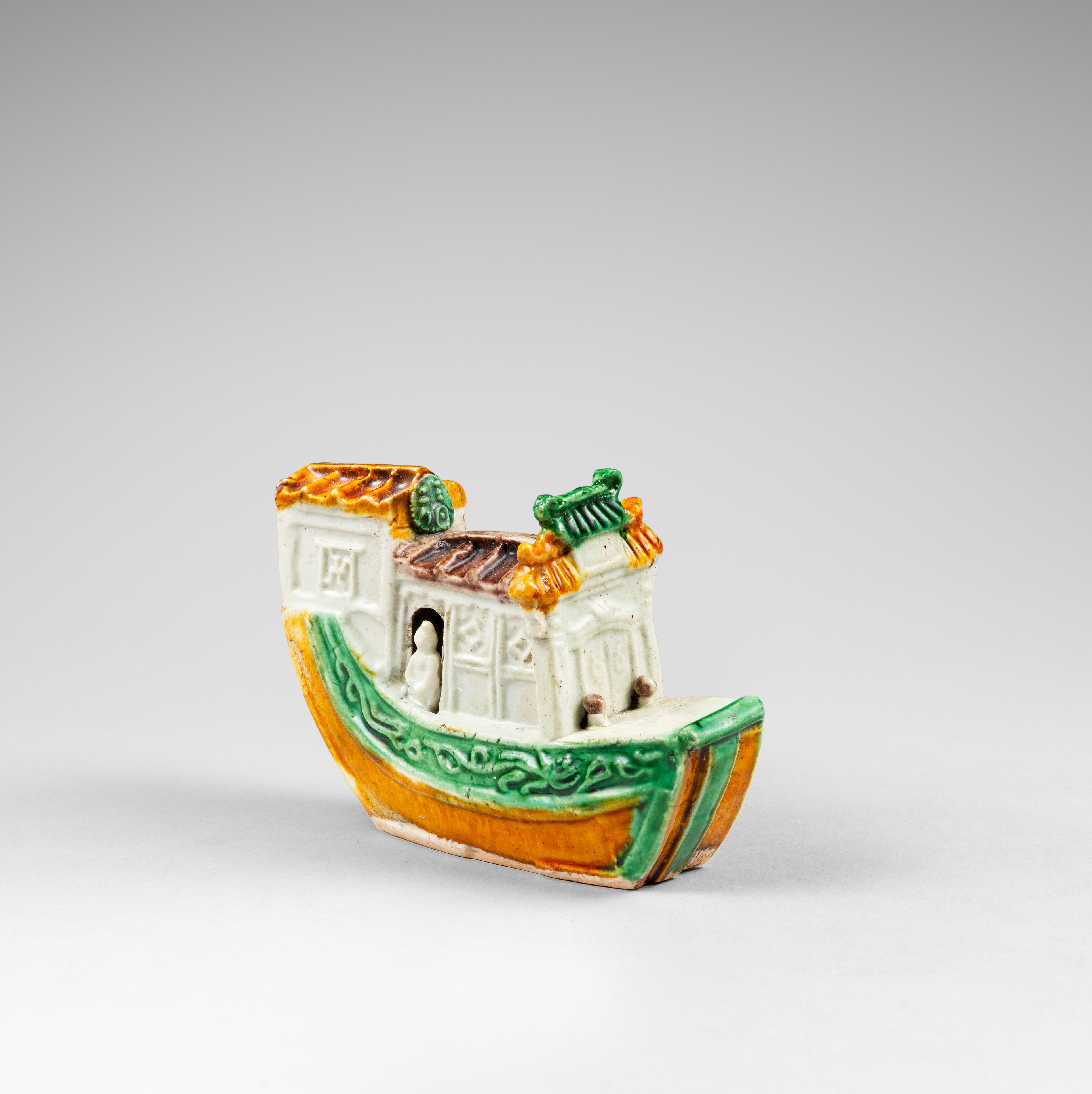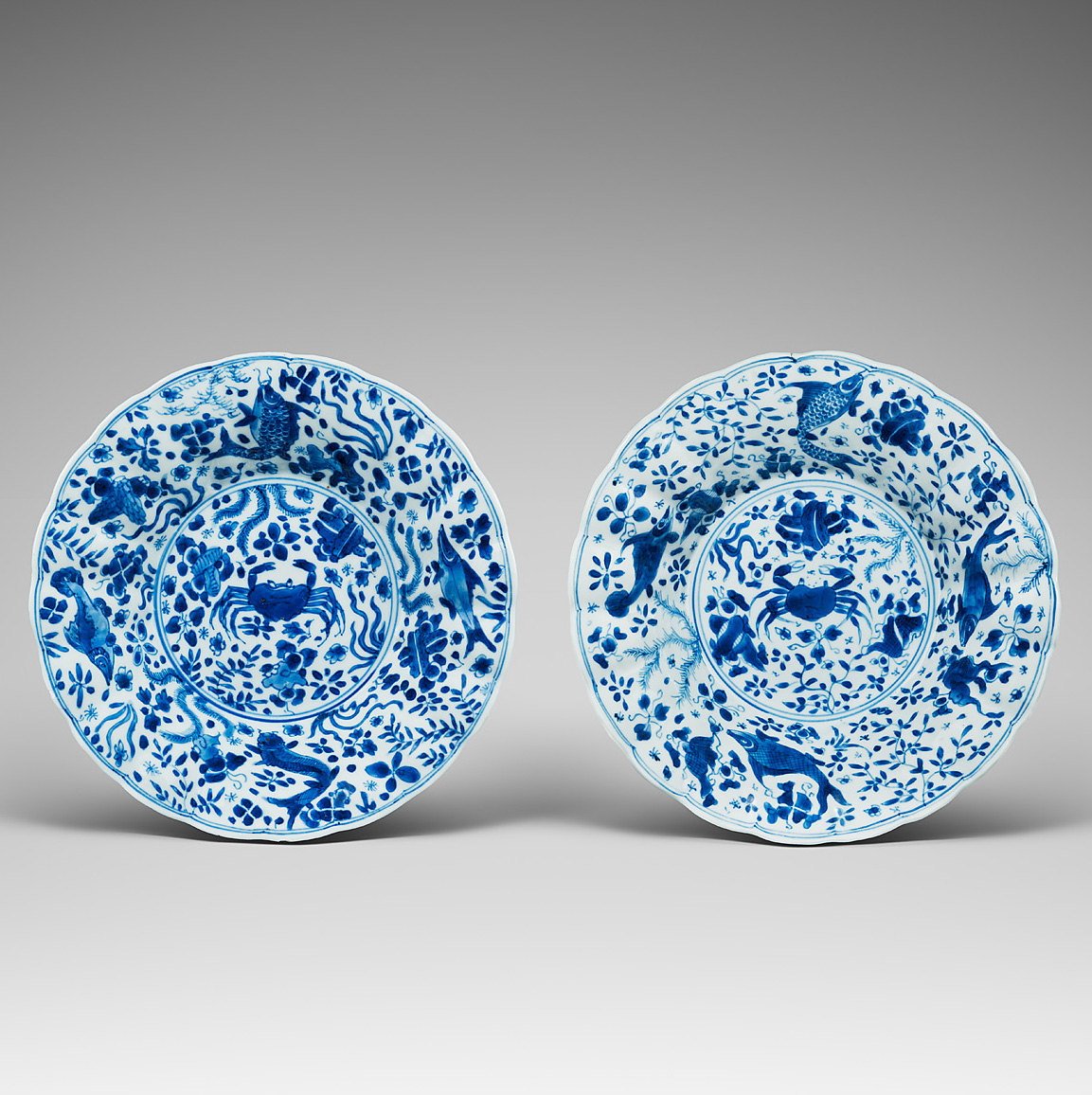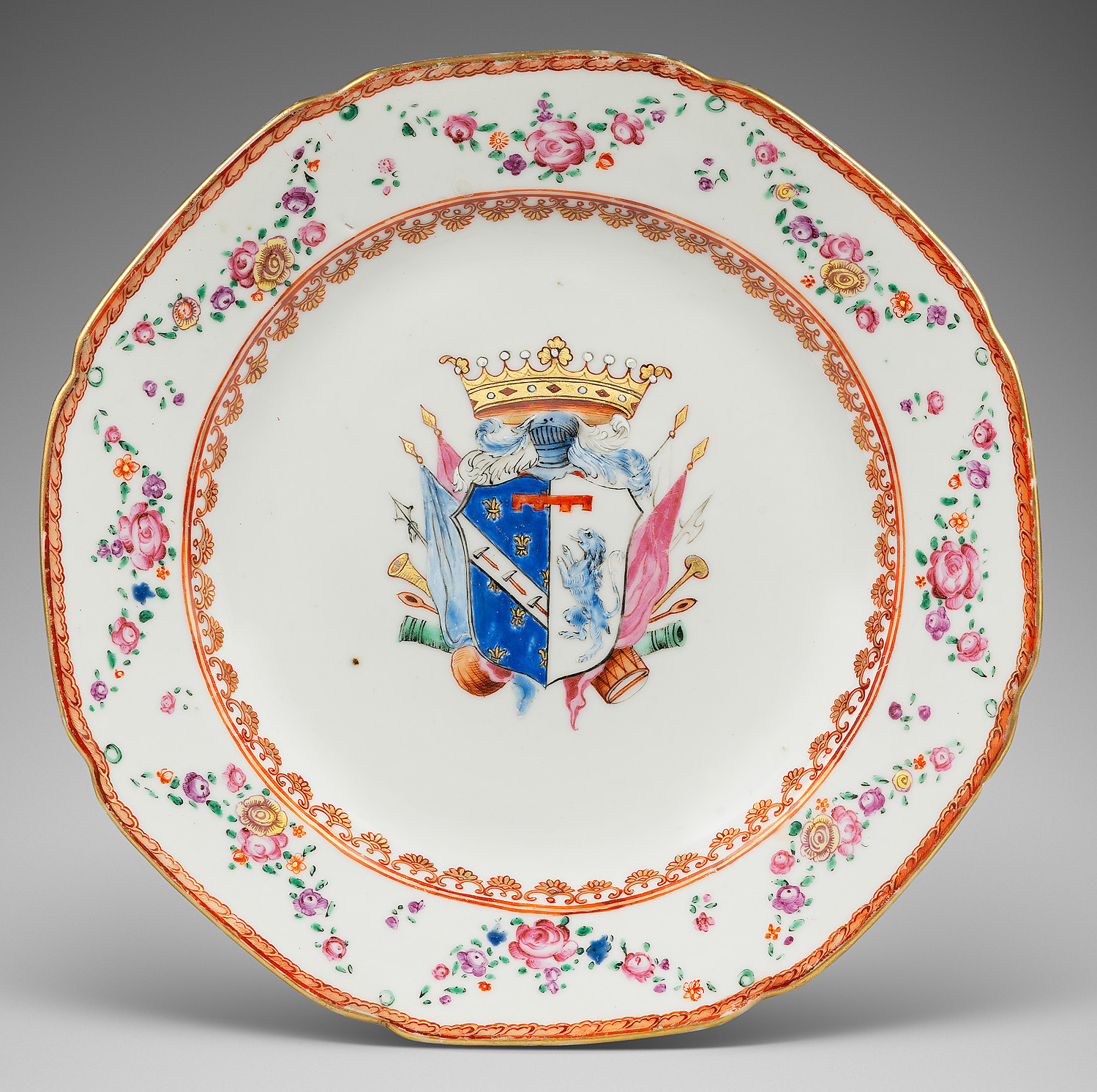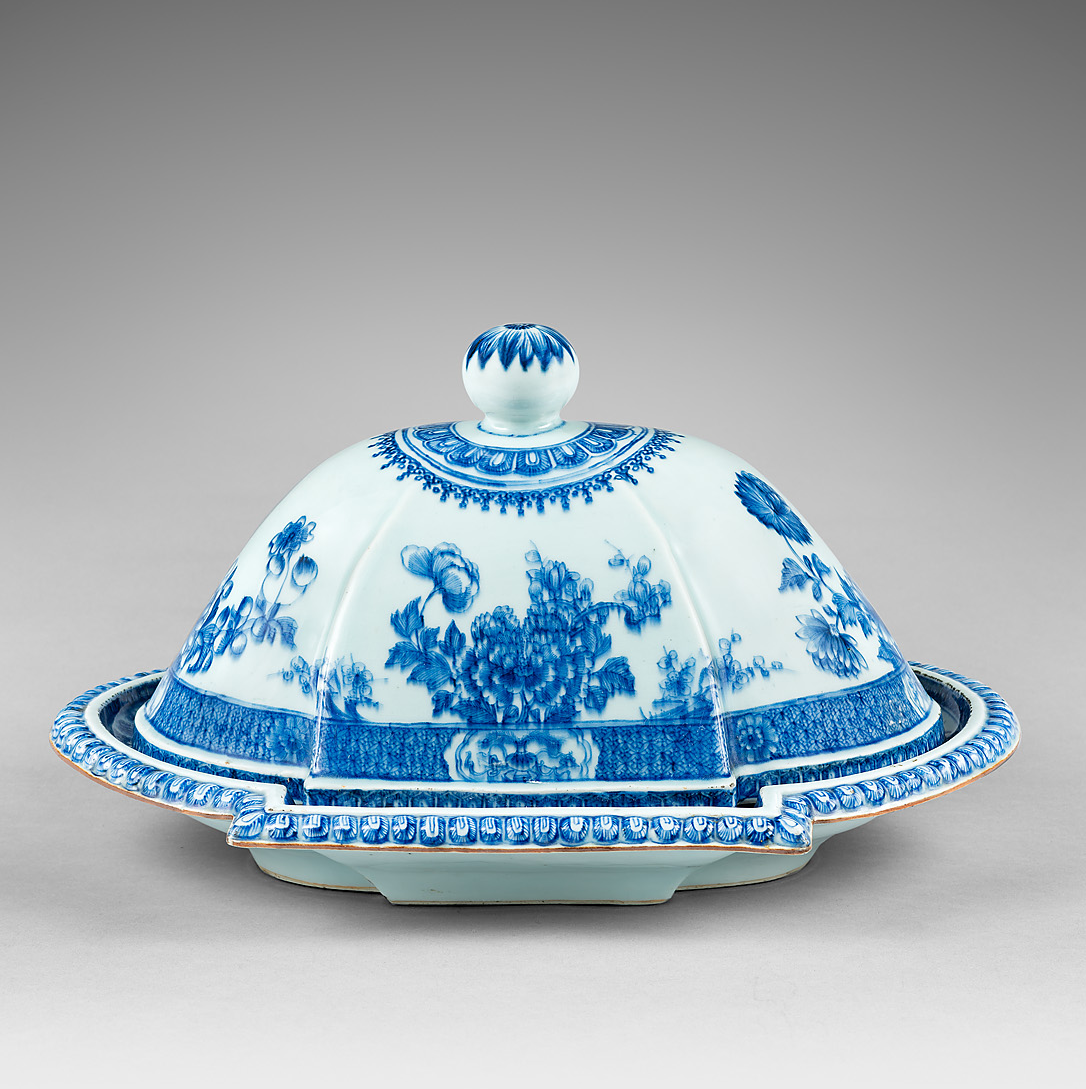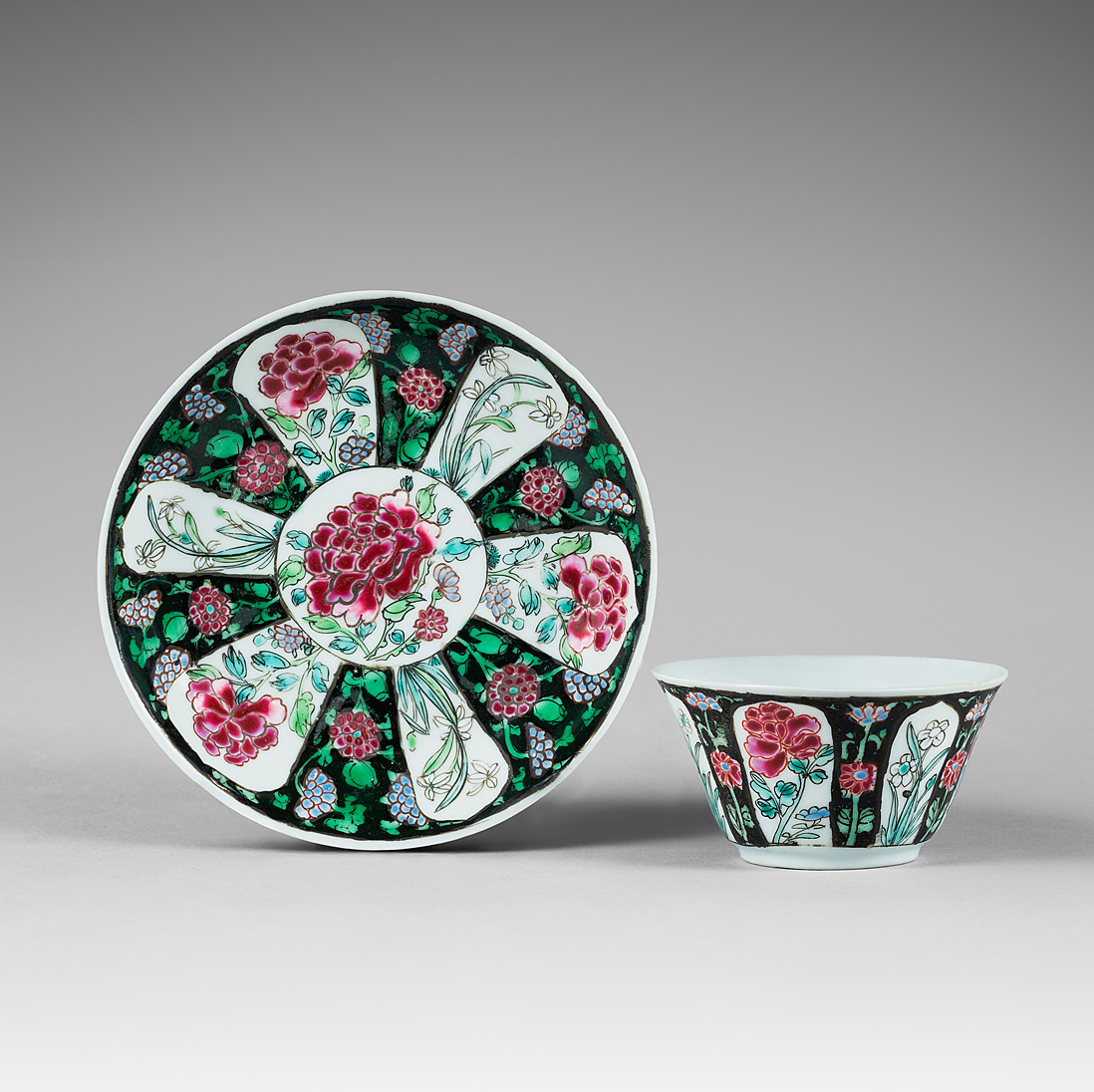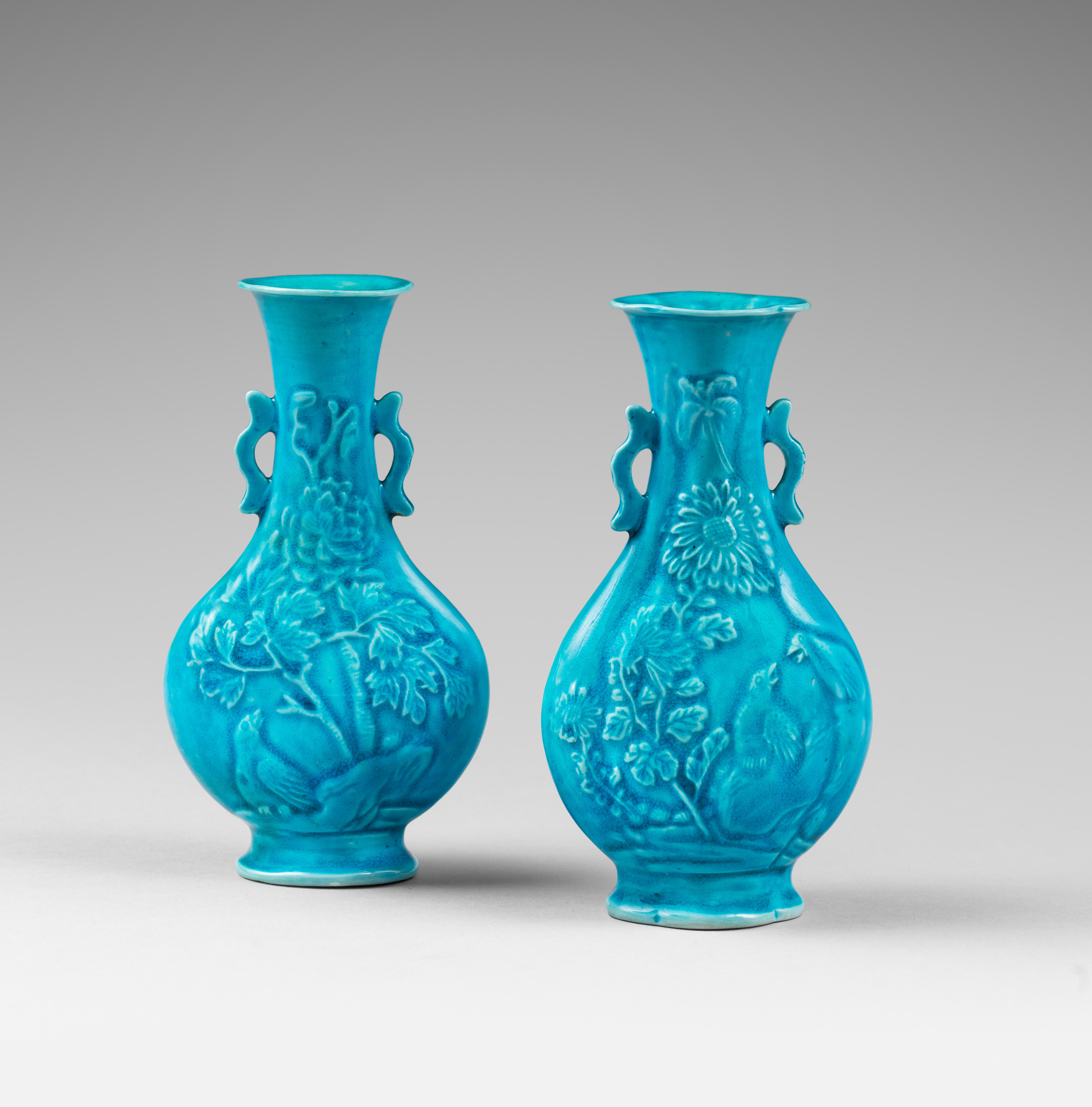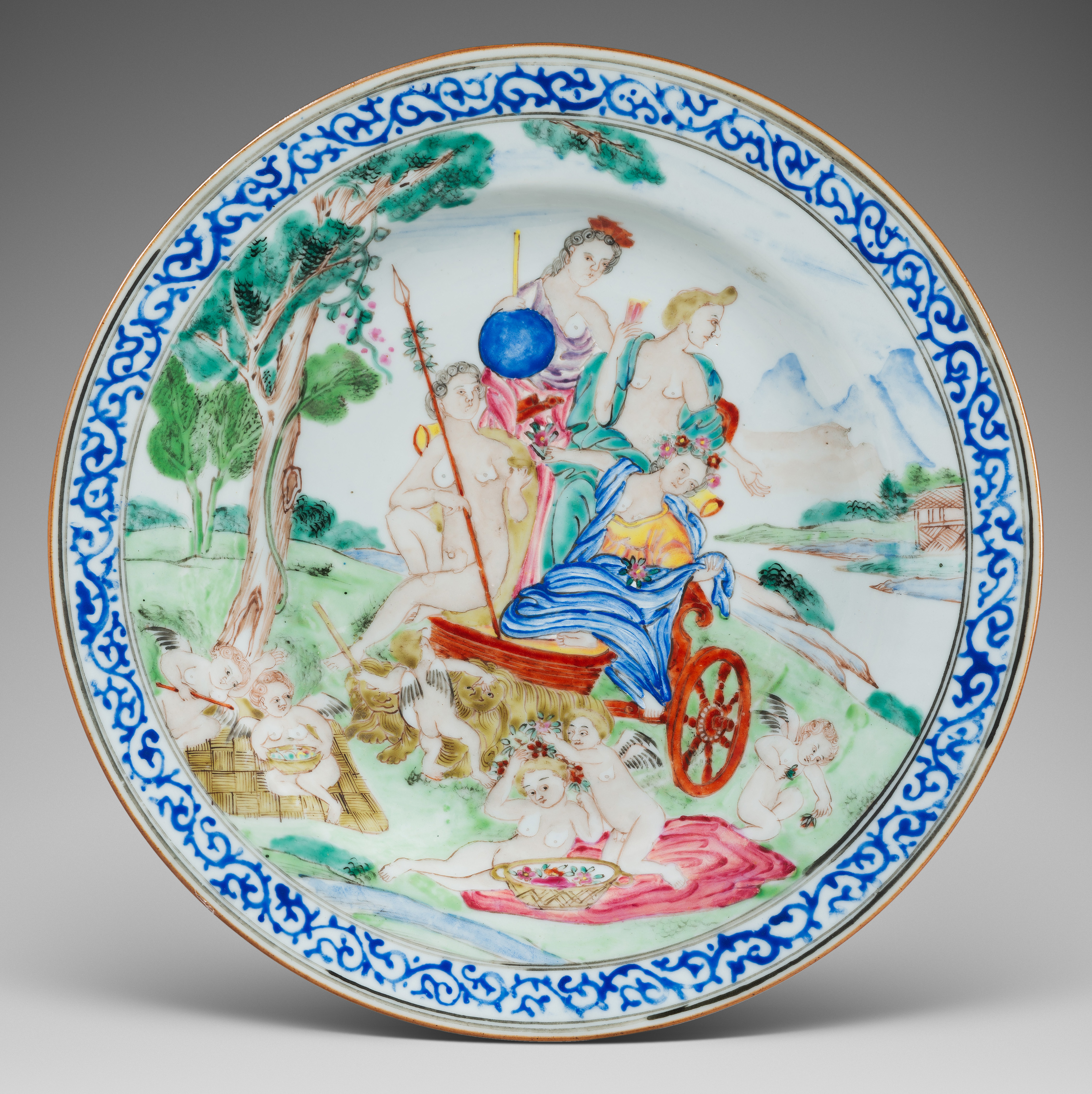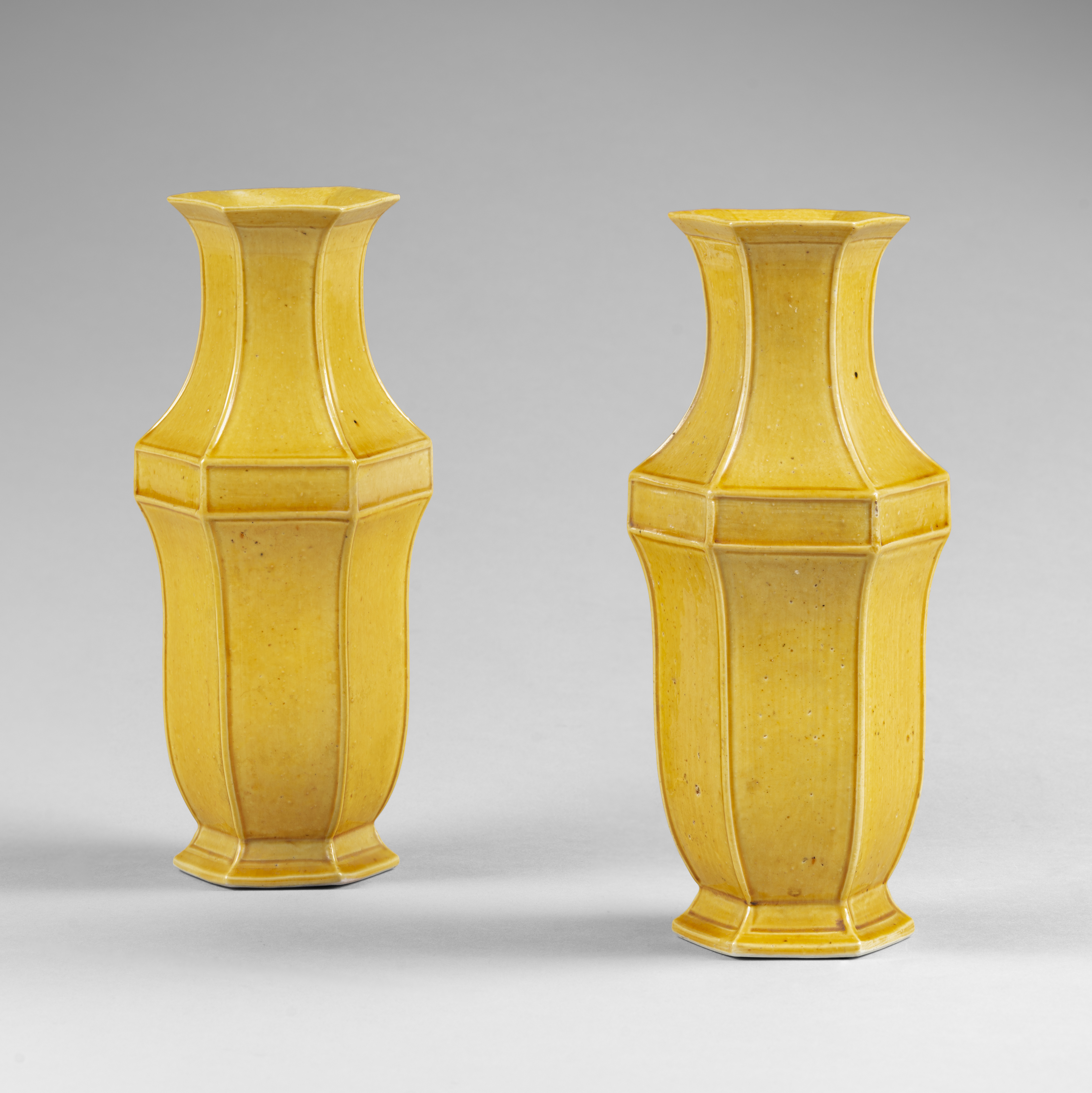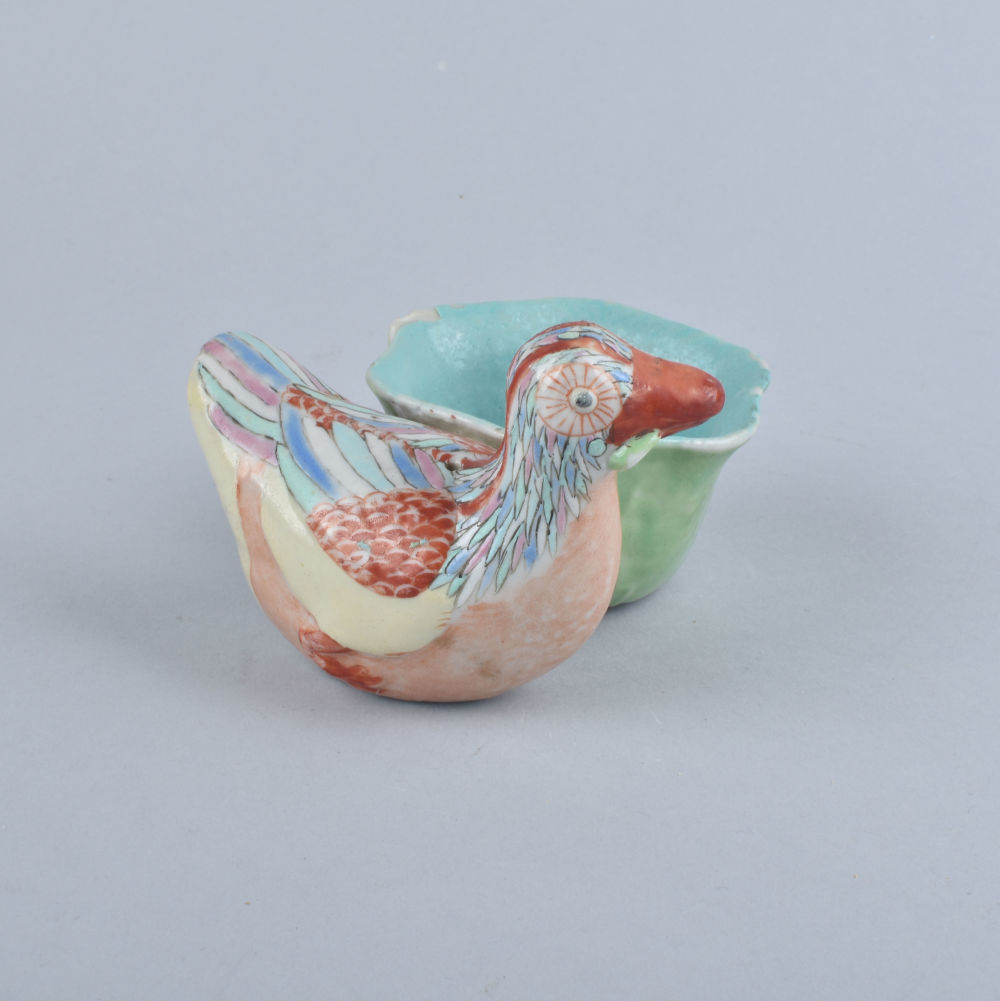
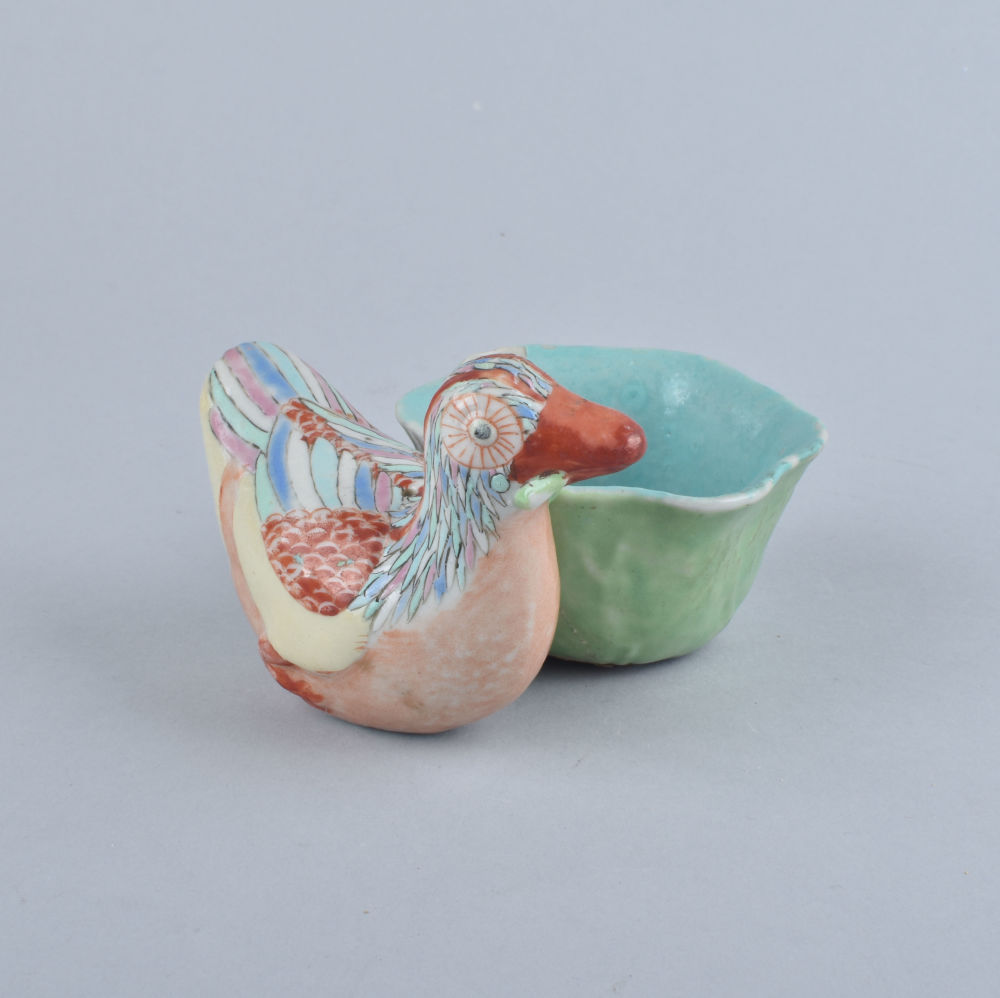
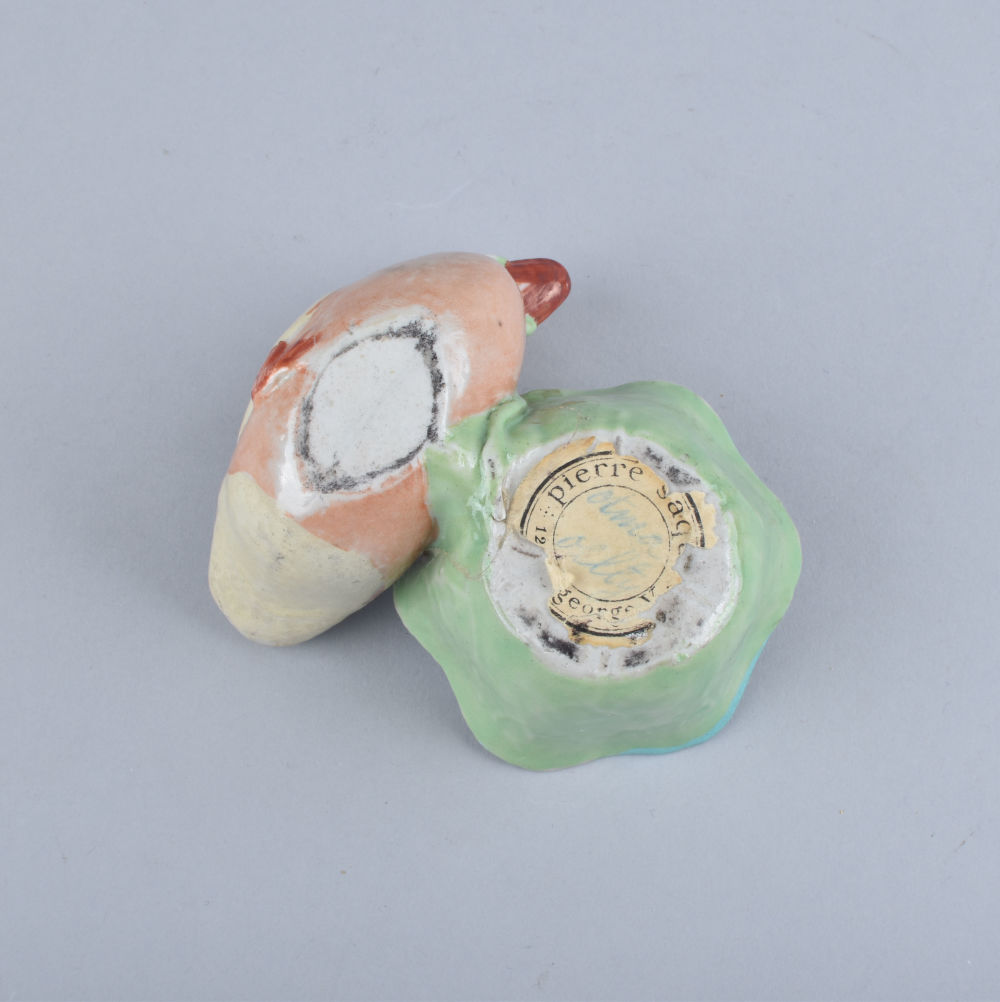
A large Chinese famille rose “duck and lotus” brush washer. Qianlong period
The brush washer modelled in the form of cupped lotus leave, the knobbly stalk rises up against the body of a floating duck that is attached to the leaf.
- Country:
- China
- Period :
- Qianlong (1735-1795)
- Material:
- Porcelain
- Dimension:
- 4.13 in. (l.) / 2.95 in. (h.)
- Reference :
- C403
- Status:
- sold
Provenance
Pierre Saqué, 12 avenue George V (Paris)
Related works
For a pair of very similar model decorated in famille rose enamels, see Christie’s London, Chinese Export Porcelain and Works of Art, 21 march 1988, lot 151.
This model is well known in (a smaller size) in famille verte enamels on the biscuit, also known in aubergine and turquoise glaze on the biscuit. For a water-dropper in famille verte enamels on the biscuit, see William R. Sargent, The Copeland Collection, Chinese and Japanese Ceramic Figures, The Peabody Museum of Salem, 1991 – no.7. For a water-dropper in turquoise enamels on the biscuit, see Regina Krahl, Chinese Ceramics, The Anthony de Rothschild Collection of Chinese Ceramics, 1996, p. 438, no. 253
For a group of two ducks on a lotus leaf decorated in famille rose enamels, see Michael Cohen & William Motley, Mandarin and Menagerie, 2008, p. 266, no. 18.6.
Notice
The combination of the duck and lotus motifs is a common joining of two independently important images. Mandarin ducks (yuan yang) are a frequent symbol for marital bliss as they mate for life. The lotus flower (hehua or lianhua) symbolizes marriage – he being a homophone for ‘harmony,’ and lian a homophone for ‘continuous’. Depicted together, these motifs traditionally express an archaic wish – for the marriage to be blessed with sons. As early as the Song dynasty, water-droppers in the form of fowl were used.



